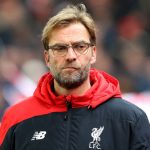Scattered shoes left behind by the victims and scraps of paper bearing their names formed a grim memorial Monday to the stadium stampede that killed 19 fans as the Ivory Coast played a World Cup qualifying match.
Government officials began investigating the cause of Sunday’s deadly crush amid accusations that the huge crowd was swelled by non-ticket holders who had bribed their way past security.
Prime Minister Guillaume Soro was scheduled to chair a “crisis meeting” on the disaster, involving top ministers as well as police and Ivorian football federation officials Monday, his spokesman said.
The meeting would make the first assessment and “locate exactly those responsible” for the disaster, said the spokesman Sindou Meite.
Meanwhile the families of the victims had the grim task of recovering the bodies of their loved ones from Abidjan’s main morgue.
A tearful Lassana Toure and his wife Mariam arrived at the mortuary to recover the body of his 17-year-old son Aboubacar. “He told me he was going to support the Elephants, and he never came back,” said a sobbing Toure, referring to the national team’s nickname.
Aminata Doumbia was mourning the loss of her 14-year-old brother Djaninin.
“How am I going to tell our mother,” she said, as she dialled a number on her cellphone.
At least 19 people died and more than 130 were injured when hundreds of fans tried to force their way into the capital’s Houphouet-Boigny Stadium as the match against Malawi got under way Sunday.
“There was a stampede because the match was about to start, everyone absolutely wanted to get in,” said Interior Minister Desire Tagro.
The minister called on the public to “remain calm” in the aftermath of the disaster.
Stewards working in and around the stadium said fans, desperate to see top Europeean-based stars, forced their way through the gates and tumbled down the steps of the terracing inside to be crushed by those behind.
Many of the supporters had tickets and were angry at being refused entry, witnesses said, saying that the security forces had taken bribes to let many ticketless people into the match.
Abandoned shoes scattered near a twisted entrance gate were the only remaining signs of the tragedy on Monday.
A few metres (yards) away, family members left identity papers belonging to the dead, many of them of school age, or scraps of paper on which were written the names of the victims.
Many casualties were treated at the stadium as the match, attended by President Laurent Gbagbo, went ahead and the worst injured were taken to the Treichville hospital in Abidjan and a military hospital.
Sports and Youth Minister Dagobert Banzio said on national television late Sunday that 19 people were killed and 132 injured in the disaster.
The recently renovated stadium has an official capacity of 35,000 but was packed with fans eager to see Ivory Coast’s European-based stars such as Didier Drogba and Salomon Kalou of Chelsea and Kolo Toure and Emmanuel Eboue of Arsenal play in the World Cup qualifying match.
Drogba scored twice and Kalou once in the game which the hosts won 5-0 as the drama unfolded.
Most of the Ivory Coast national team play for clubs in England, France and other top European championships.
The interior and sports ministers held an an emergency meeting with leaders of the Ivory Coast Football Federation (FIF) late Sunday following the disaster, FIF president Albert Kakou Anzouan told AFP.
Hundreds of people have been killed in stadium riots and stampedes in Africa over the last decade.
The worst in recent years was a stadium crush in Ghana’s capital Accra which left 126 people dead in 2001.
Earlier the same year, 43 people died in a crush at Ellis Park in Johannesburg.
- Soccer News Like
- Be the first of your friends!


















ABOUT THE AUTHOR
SoccerNews
Soccernews.com is news blog for soccer with comprehensive coverage of all the major leagues in Europe, as well as MLS in the United States. In addition we offer breaking news for transfers and transfer rumors, ticket sales, betting tips and offers, match previews, and in-depth editorials.
You can follow us on Facebook: Facebook.com/soccernews.com or Twitter: @soccernewsfeed.